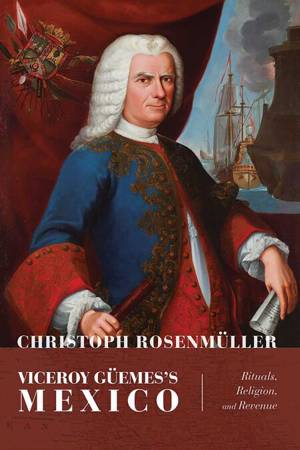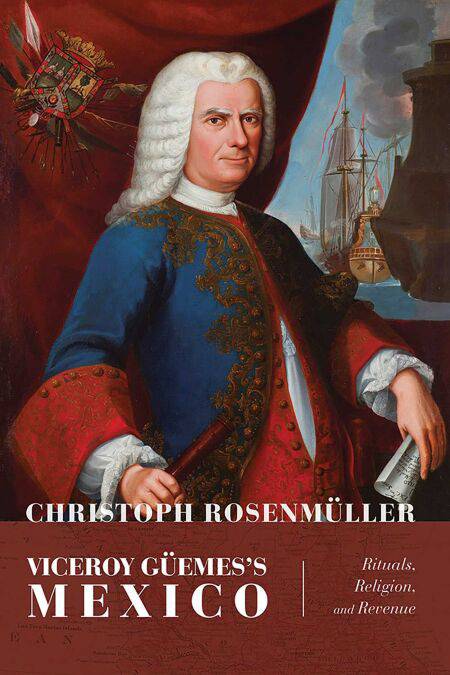
- Retrait gratuit dans votre magasin Club
- 7.000.000 titres dans notre catalogue
- Payer en toute sécurité
- Toujours un magasin près de chez vous
- Retrait gratuit dans votre magasin Club
- 7.000.0000 titres dans notre catalogue
- Payer en toute sécurité
- Toujours un magasin près de chez vous
22,36 €
+ 22 points
Format
Description
Viceroy Güemes’s Mexico: Rituals, Religion, and Revenue examines the career of Juan Francisco Güemes y Horcasitas, viceroy of New Spain from 1746 to 1755. It provides the best account yet of how the colonial reform process most commonly known as the Bourbon Reforms did not commence with the arrival of José de Gálvez, the visitador general to New Spain appointed in 1765. Rather, Güemes, ennobled as the conde de Revillagigedo in 1749, pushed through substantial reforms in the late 1740s and early 1750s, most notably the secularization of the doctrinas (turning parishes administering to Natives over to diocesan priests) and the state takeover of the administration of the alcabala tax in Mexico City. Both measures served to strengthen royal authority and increase fiscal revenues, the twin goals historians have long identified as central to the Bourbon reform project. Güemes also managed to implement these reforms without stirring up the storm of protest that attended the Gálvez visita. The book thus recasts how historians view eighteenth-century colonial reform in New Spain and the Spanish empire generally.
Christoph Rosenmüller’s study of Güemes is the first in English-language scholarship that draws on significant research in a family archive. Using these rarely consulted sources allows for a deeper understanding of daily life and politics. Whereas most scholars have relied on the official communications in the great archives to emphasize tightly choreographed rituals, for instance, Rosenmüller’s work shows that much interaction in the viceregal palace was rather informal—a fact that scholars have overlooked. The sources throw light on meeting and greeting people, ongoing squabbles over hierarchy and ceremony, walks on the Alameda square, the role of the vicereine and their children, and working hours in the offices. Such insights are drawn from a rare family archive harboring a trove of personal communications. The resulting book paints a vivid portrait of a society undergoing change earlier than many historians have believed.
Christoph Rosenmüller’s study of Güemes is the first in English-language scholarship that draws on significant research in a family archive. Using these rarely consulted sources allows for a deeper understanding of daily life and politics. Whereas most scholars have relied on the official communications in the great archives to emphasize tightly choreographed rituals, for instance, Rosenmüller’s work shows that much interaction in the viceregal palace was rather informal—a fact that scholars have overlooked. The sources throw light on meeting and greeting people, ongoing squabbles over hierarchy and ceremony, walks on the Alameda square, the role of the vicereine and their children, and working hours in the offices. Such insights are drawn from a rare family archive harboring a trove of personal communications. The resulting book paints a vivid portrait of a society undergoing change earlier than many historians have believed.
Spécifications
Parties prenantes
- Auteur(s) :
- Editeur:
Contenu
- Nombre de pages :
- 272
- Langue:
- Anglais
- Collection :
Caractéristiques
- EAN:
- 9780826365903
- Date de parution :
- 14-03-24
- Format:
- Ebook
- Protection digitale:
- Adobe DRM
- Format numérique:
- ePub

Les avis
Nous publions uniquement les avis qui respectent les conditions requises. Consultez nos conditions pour les avis.






